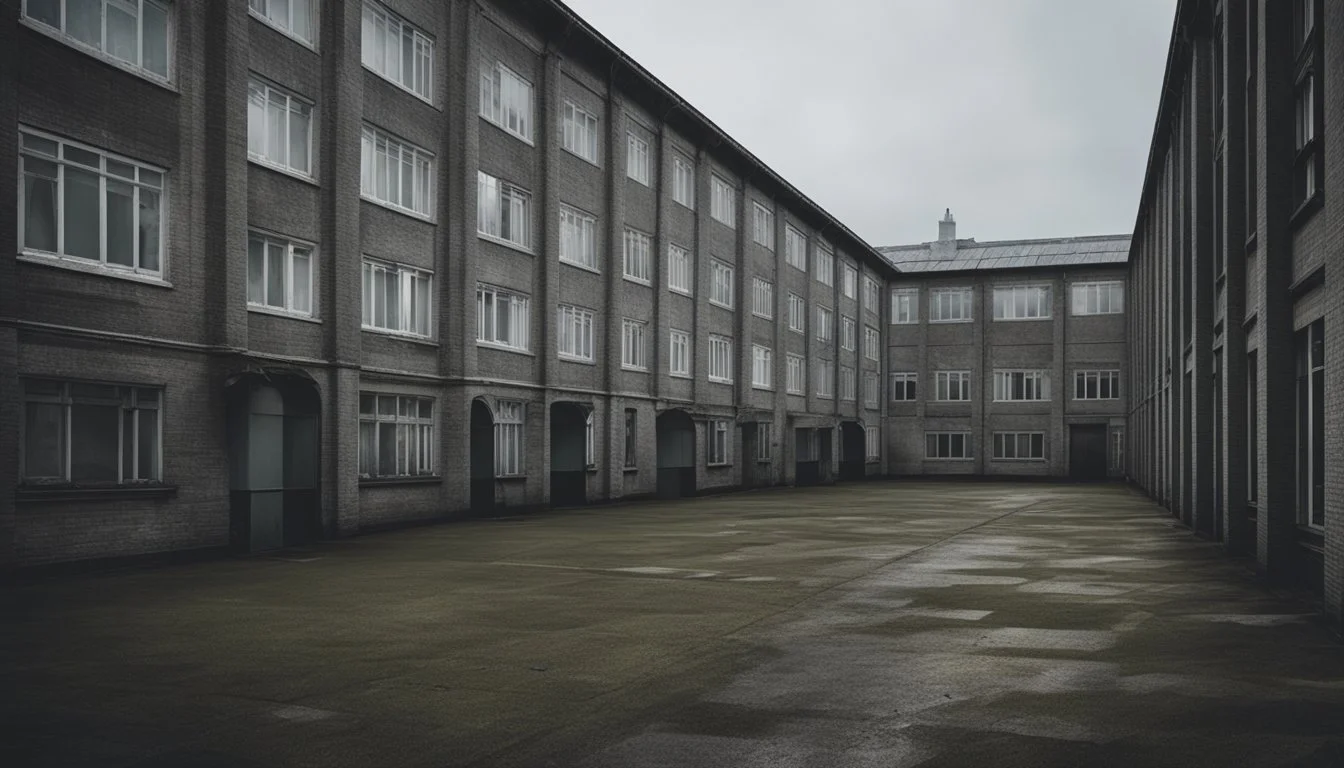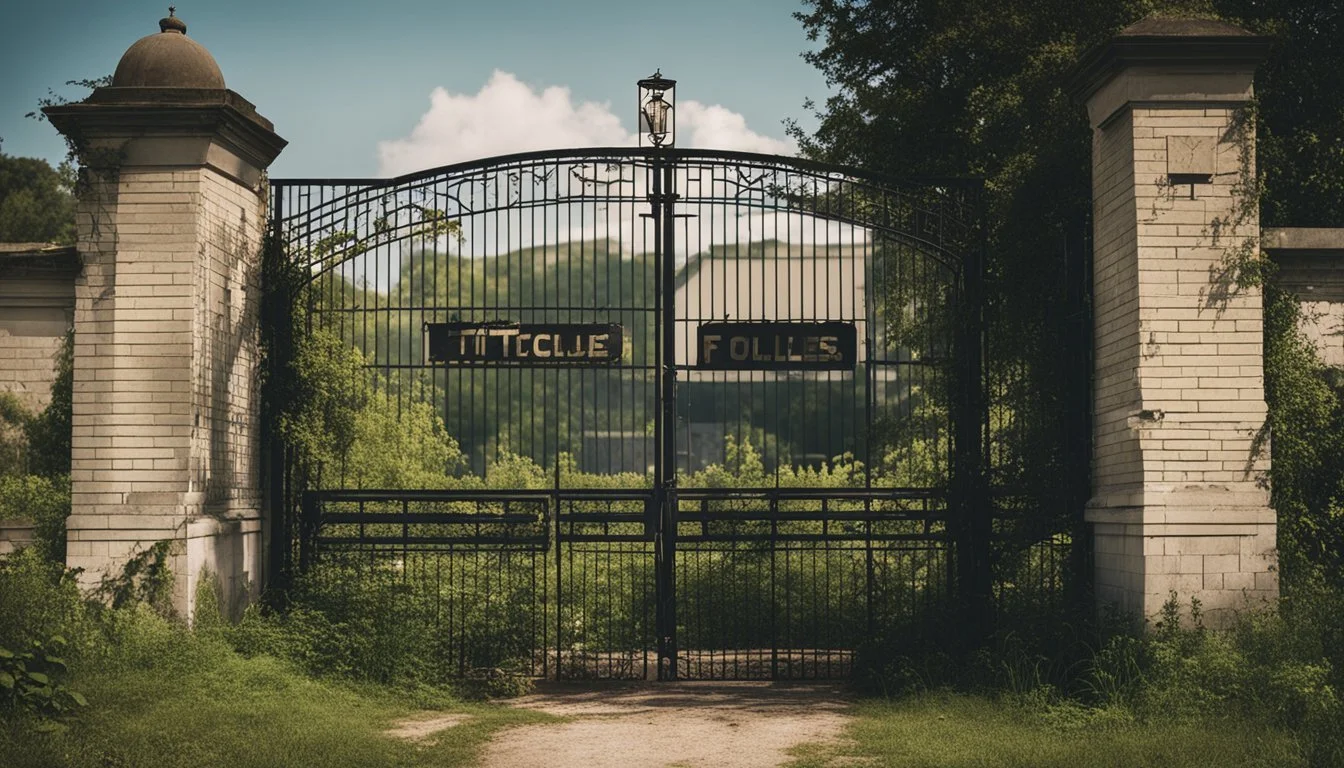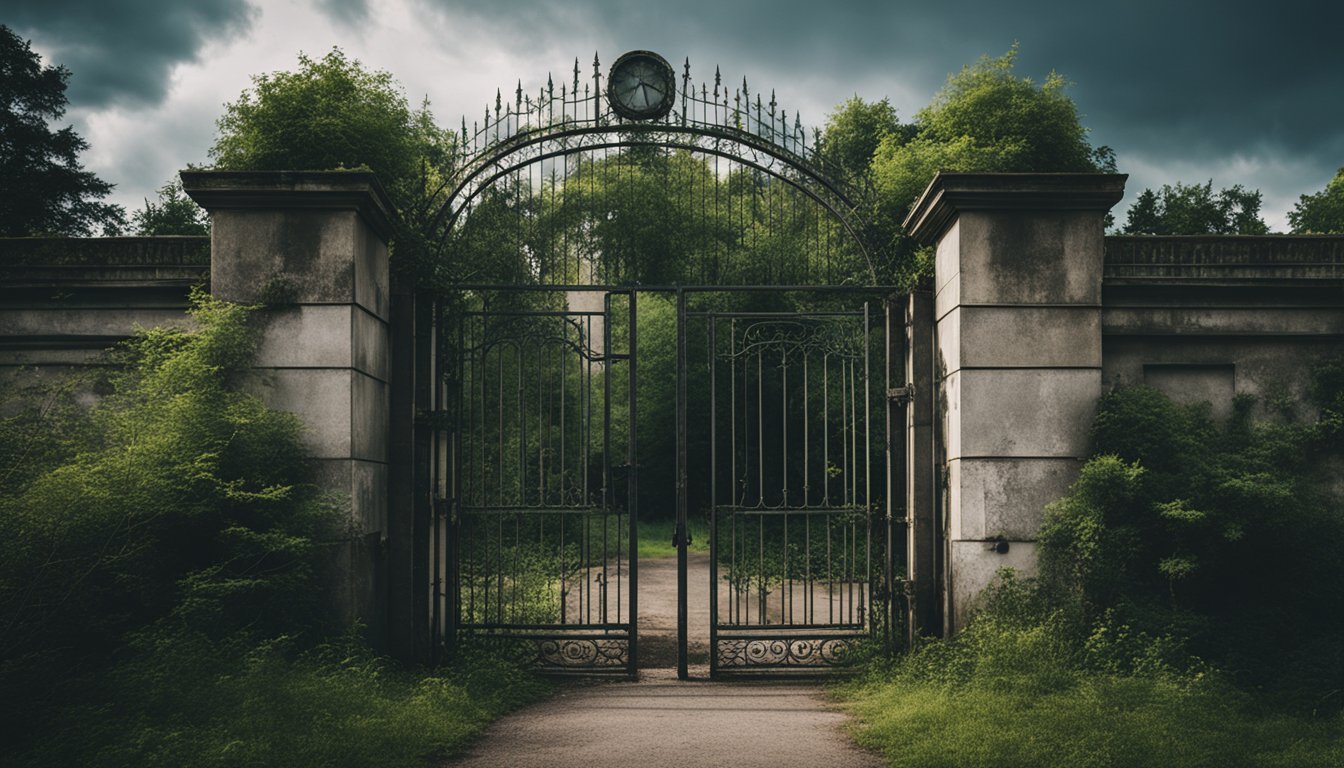Banned Documentary 'Titicut Follies' Exposes Mental Health Abuses and Censorship
Frederick Wiseman's 1967 documentary 'Titicut Follies' exposed the harsh realities of life inside Bridgewater State Hospital, a Massachusetts institution for the criminally insane. The film's unflinching portrayal of patient mistreatment and inhumane conditions sparked immediate controversy upon its release.
'Titicut Follies' was banned from public viewing for over two decades, making it one of the most suppressed documentaries in American history. The Massachusetts Supreme Judicial Court cited concerns for patient privacy as the primary reason for the ban. This decision effectively silenced a powerful critique of the mental health care system and delayed much-needed reforms.
The ban on 'Titicut Follies' was finally lifted in 1991, allowing the public to witness Wiseman's groundbreaking work. The film's release reignited discussions about mental health treatment and the ethics of documentary filmmaking. Its impact continues to resonate, influencing subsequent works and shaping conversations about institutional care and patient rights.
Historical Context
The emergence of documentary films in the early 20th century coincided with significant social and technological changes. This period saw the rise of cinema as a powerful medium for capturing and presenting reality.
The Birth of Documentary Films
Documentary filmmaking took shape in the 1920s and 1930s. In 1929, Soviet filmmaker Dziga Vertov released "Man with a Movie Camera," a groundbreaking work that showcased the potential of documentaries.
Vertov, along with fellow Soviet filmmaker Sergei Eisenstein, pioneered innovative techniques in non-fiction cinema. Their work influenced documentary makers worldwide.
In France, filmmakers like Jean Vigo began exploring social realism through documentaries. This movement laid the groundwork for future generations of documentarians.
Censorship in Cinema History
Censorship has long been a challenge for filmmakers, particularly those tackling controversial subjects. Early documentary films often faced government scrutiny and suppression.
In the United States, the Hays Code of 1930 imposed strict moral guidelines on film content. This affected both fiction and non-fiction productions.
Documentaries addressing social issues or political topics were frequently targets of censorship. Governments and institutions often sought to control the narrative presented to the public.
The struggle between filmmakers' desire for truth-telling and institutional attempts at control has shaped the history of documentary cinema.
Titicut Follies: The Film
Frederick Wiseman's 1967 documentary "Titicut Follies" offers a stark portrayal of life inside Bridgewater State Hospital for the criminally insane. The film's raw, unflinching approach shocked audiences and authorities alike, leading to decades of legal battles and censorship.
Synopsis and Filmmaking Methodology
"Titicut Follies" captures the daily routines and interactions at Bridgewater State Hospital. Wiseman employs a direct cinema style, eschewing narration and interviews. His camera observes without intervention, allowing scenes to unfold naturally.
The film opens with inmates performing in a talent show, contrasting sharply with subsequent scenes of harsh treatment and neglect. Viewers witness:
Forced feedings
Invasive medical examinations
Patient interrogations
Unsanitary living conditions
Wiseman's approach creates an immersive experience, placing the audience in the role of silent witness to the institution's realities.
Frederick Wiseman's Vision
Wiseman aimed to expose the hidden truths of institutional life in America. His goal was to provoke thought and discussion about mental health care and societal attitudes towards the mentally ill.
The director's commitment to authenticity is evident in:
Unscripted scenes
Natural lighting
Minimal crew presence
Wiseman believed that by presenting unvarnished reality, audiences would be compelled to confront uncomfortable truths about their society and its treatment of vulnerable individuals.
Reflections on the American Dream
"Titicut Follies" challenges the notion of America as a beacon of progress and compassion. The film reveals a darker side of institutional care, where:
Patient dignity is often disregarded
Staff seem desensitized to suffering
Basic rights are routinely violated
This stark portrayal forces viewers to question the gap between American ideals and the realities faced by society's most marginalized members. Wiseman's documentary suggests that the American Dream remains out of reach for those trapped in such systems.
Editorial Techniques and Influence
Wiseman's editing approach in "Titicut Follies" was groundbreaking. He employs:
Long, uninterrupted takes
Juxtaposition of contrasting scenes
Absence of non-diegetic sound
These techniques create a sense of immediacy and authenticity. The film's influence on documentary filmmaking has been profound, inspiring generations of filmmakers to adopt similar observational styles.
"Titicut Follies" also pioneered the use of cinema verité in exposing social issues. Its unflinching gaze set a new standard for documentary transparency and ethical responsibility in portraying vulnerable subjects.
The Controversy and Legal Battle
"Titicut Follies" ignited a firestorm of controversy upon its release, leading to a protracted legal battle and decades-long ban. The film's unflinching portrayal of conditions at Bridgewater State Hospital drew sharp reactions from various quarters.
Initial Reception by Critics and Politicians
Critics praised "Titicut Follies" for its raw, uncompromising depiction of life inside a mental institution. Many lauded Frederick Wiseman's observational approach and the film's power to expose systemic issues.
However, Massachusetts politicians reacted with alarm. They viewed the documentary as a threat to the state's reputation and an invasion of patients' privacy. Some officials claimed the film exploited vulnerable individuals for shock value.
The stark imagery and unfiltered content polarized audiences. While some saw it as a necessary exposé, others deemed it exploitative or sensationalist.
The Ban and Legal Proceedings
Massachusetts authorities swiftly moved to suppress "Titicut Follies." They filed a lawsuit to prevent its public screening, citing patient privacy concerns.
In 1967, a judge ruled in favor of the state. The film was banned from public exhibition, with limited exceptions for medical and legal professionals. This unprecedented censorship of a documentary sparked intense debate about First Amendment rights and government overreach.
Wiseman fought the ban for years through appeals and legal challenges. The case reached the Massachusetts Supreme Judicial Court, which upheld the ban in 1969.
Impact on Film Distribution and Public Perception
The ban severely limited "Titicut Follies'" distribution and cultural impact for over two decades. It became a notorious "banned film," shrouded in mystery and controversy.
Legal restrictions prevented wide theatrical release or television broadcast. This hampered public awareness of the issues it exposed at Bridgewater State Hospital.
The film's suppression inadvertently increased its mystique among cinephiles and civil liberties advocates. Many viewed it as a symbol of government oppression and censorship.
In 1991, after years of legal battles, the ban was finally lifted. "Titicut Follies" could now be shown publicly, allowing a new generation to confront its challenging content and historical significance.
Societal Impact
"Titicut Follies" exposed harsh realities within mental health institutions, sparking public concern and influencing documentary filmmaking. The film's suppression highlighted tensions between transparency and privacy in institutional settings.
Examination of Mental Health Facilities
The documentary shed light on deplorable conditions in psychiatric hospitals. It revealed instances of patient abuse, neglect, and inadequate treatment. The film's raw footage challenged prevailing notions about mental health care.
Viewers witnessed patients in squalid conditions, subjected to force-feeding and humiliating treatment. These scenes prompted calls for reform in mental health facilities across the United States.
The ban on "Titicut Follies" ironically underscored the need for greater oversight and transparency in psychiatric institutions.
Public Awareness and Fear
The film's brief screenings and subsequent ban generated intense public interest. Many were shocked by the harsh realities depicted on screen.
Fear spread about the potential mistreatment of mentally ill individuals in state-run facilities. Families with institutionalized loved ones expressed concern and demanded improved care standards.
The suppression of the documentary fueled speculation about similar conditions in other institutions. This led to increased scrutiny of mental health facilities nationwide.
Influence on Documentary Filmmaking
"Titicut Follies" pioneered the observational documentary style. Wiseman's unobtrusive filming technique allowed raw, unfiltered scenes to unfold naturally.
The film's controversial reception highlighted ethical dilemmas in documentary making. It raised questions about consent, privacy, and the filmmaker's responsibility to subjects.
Despite its ban, "Titicut Follies" inspired a generation of documentarians. Many filmmakers adopted similar approaches to expose social issues and institutional failures.
The film's legal battles set precedents for documentary rights and censorship. These court cases shaped future discussions on freedom of expression in non-fiction filmmaking.
Related Works and Influences
"Titicut Follies" sparked a wave of socially conscious documentaries and influenced various forms of media. Its impact extended beyond the realm of film, touching journalism, television, and even popular culture.
Contemporaneous Works of the 1960s
The 1960s saw a surge in documentary filmmaking that exposed social issues. Claude Lanzmann's "Shoah" (1985), while produced later, shared "Titicut Follies'" unflinching approach to difficult subject matter. Television journalists began incorporating documentary-style techniques into their reporting, bringing hidden realities to a broader audience.
Frederick Wiseman's work inspired other filmmakers to tackle institutional critiques. John Waters, known for "Hairspray," cited "Titicut Follies" as an influence on his early provocative films.
Modern-Day Reflections in Media
Contemporary documentaries continue to draw inspiration from "Titicut Follies'" raw portrayal of institutional life. Investigative journalism has adopted similar techniques to expose injustices in various settings, from prisons to indigenous communities.
Recent films have explored the treatment of marginalized groups, echoing themes from "Titicut Follies." Television series have incorporated documentary-style elements to add authenticity to their narratives, blurring the lines between fiction and reality.
The NFL's handling of player health issues has been scrutinized through documentaries inspired by Wiseman's approach. These works carry forward the legacy of "Titicut Follies," shining a light on overlooked aspects of society.
Legacy and Relevance Today
Frederick Wiseman's "Titicut Follies" continues to influence documentary filmmaking and mental health advocacy decades after its release. The film's impact extends beyond its initial controversy, shaping discussions on institutional reform and ethical documentary practices.
Filmmaker Frederick Wiseman's Ongoing Impact
Wiseman's career flourished despite the ban on "Titicut Follies." He directed over 40 documentaries, establishing himself as a pioneer of observational filmmaking. His style, characterized by an unobtrusive camera and lack of narration, influenced generations of documentarians. Wiseman's later works explored various institutions, from high schools to hospitals, continuing the critical examination he began with "Titicut Follies."
His approach to documenting social issues gained widespread recognition. In 2016, Wiseman received an honorary Academy Award for his contributions to cinema, cementing his legacy as a groundbreaking filmmaker.
Viewing 'Titicut Follies' in the Modern Context
When "Titicut Follies" became widely available in 1991, it sparked renewed discussions on mental health treatment and patients' rights. The film's depiction of conditions at Bridgewater remains shocking to modern viewers, highlighting the progress made in psychiatric care while also serving as a reminder of past abuses.
Mental health advocates use the documentary as a tool to promote awareness and push for ongoing reforms. The film's relevance persists as debates continue about the treatment of mentally ill individuals in the criminal justice system. "Titicut Follies" stands as a powerful historical document, encouraging viewers to critically examine current institutional practices and societal attitudes toward mental illness.
Concluding Thoughts
The long-suppressed documentary "Titicut Follies" exposed harsh realities and sparked crucial conversations about mental health care and institutional reform. Its impact continues to resonate decades later, highlighting the power of film to drive social change.
The Role of Art in Social Change
Frederick Wiseman's "Titicut Follies" exemplifies how art can be a catalyst for societal transformation. The documentary's raw portrayal of conditions at Bridgewater State Hospital forced viewers to confront uncomfortable truths. It challenged public perceptions and galvanized activists to push for reforms in mental health care and patient rights.
The film's ban paradoxically increased its influence, as the legal battle drew attention to its subject matter. This demonstrates how attempts to suppress art can backfire, amplifying its message.
"Titicut Follies" inspired other filmmakers and journalists to investigate similar institutions, creating a ripple effect of awareness and advocacy. Its legacy underscores the vital role documentaries play in exposing injustice and promoting social progress.



